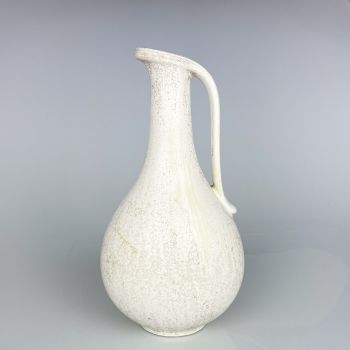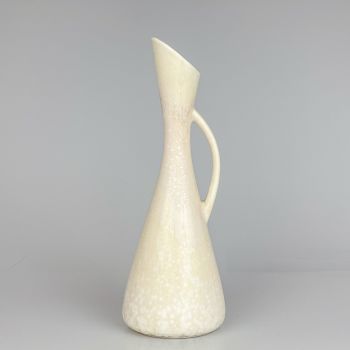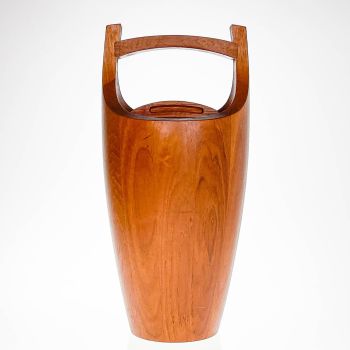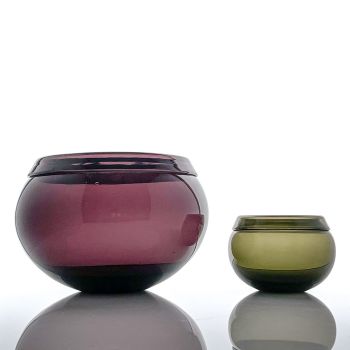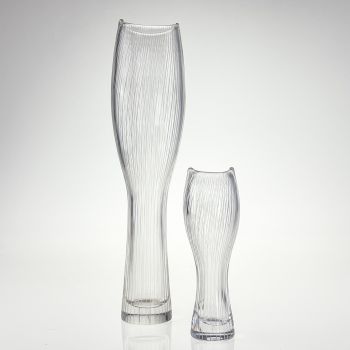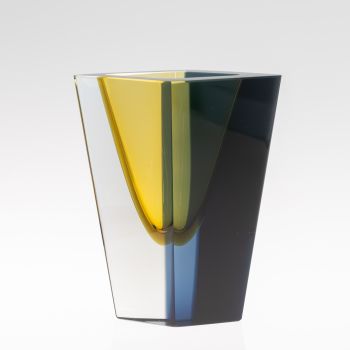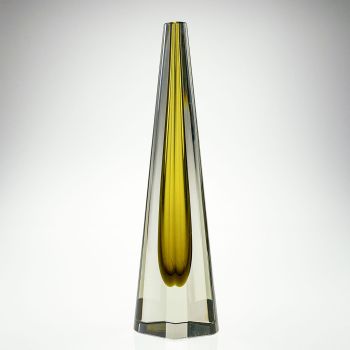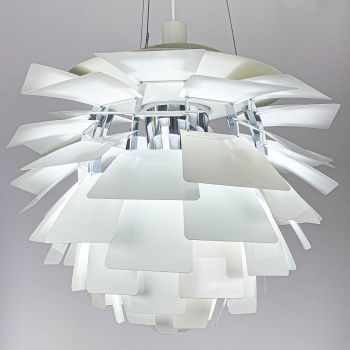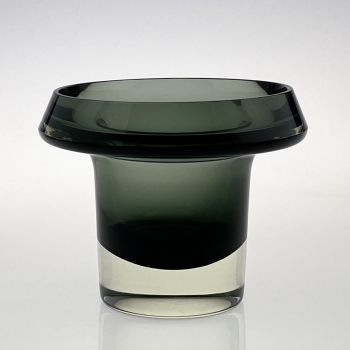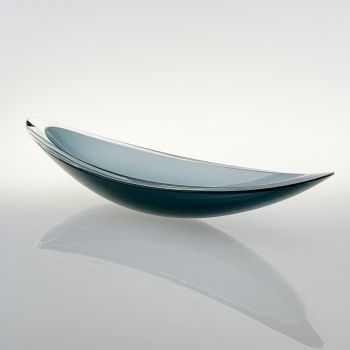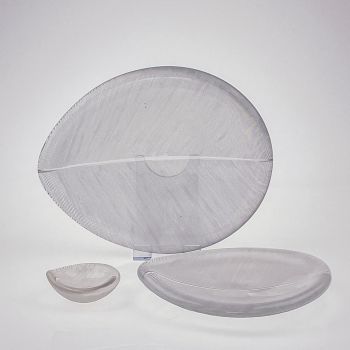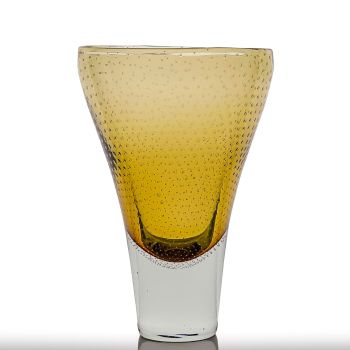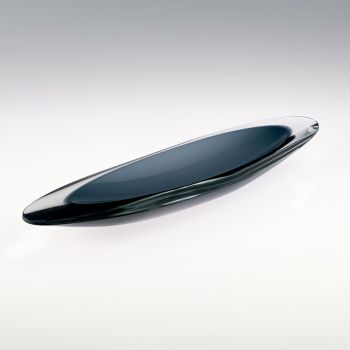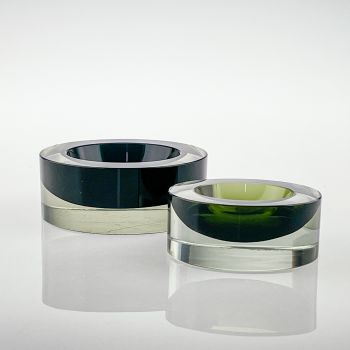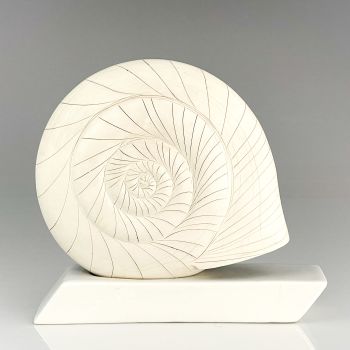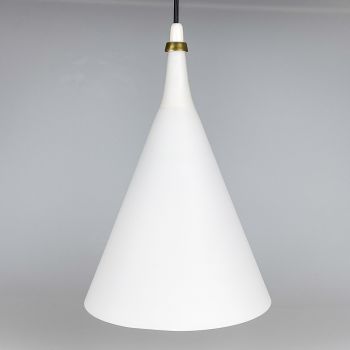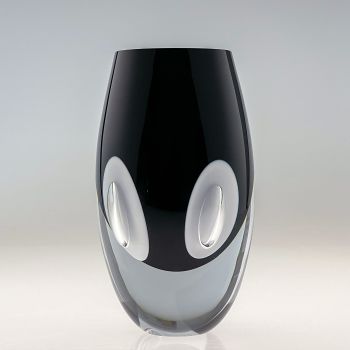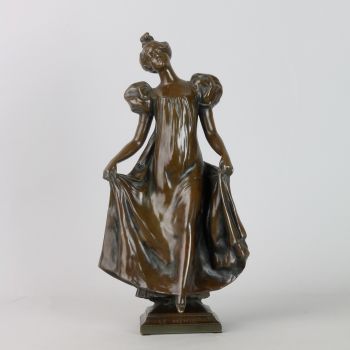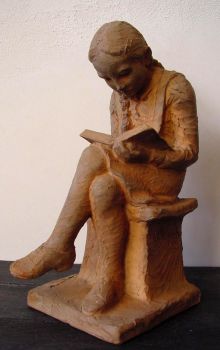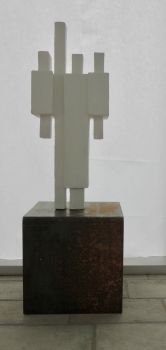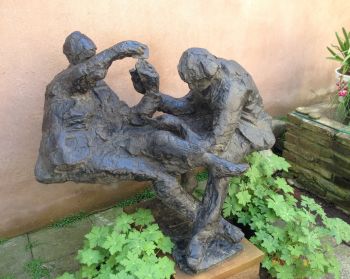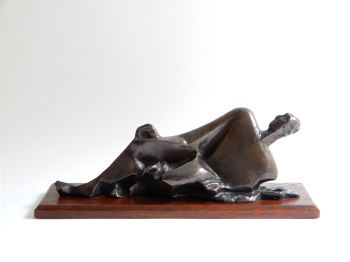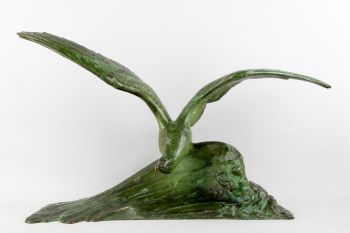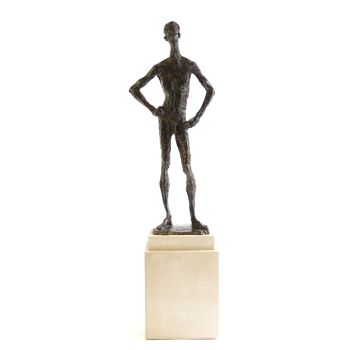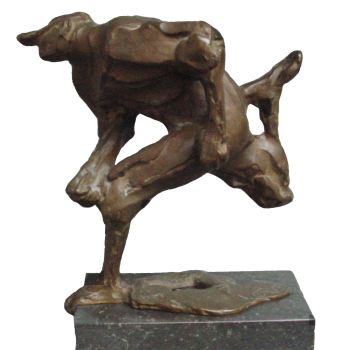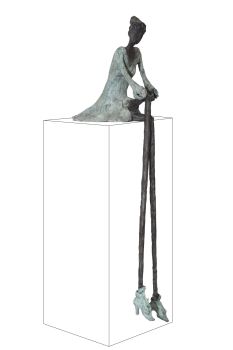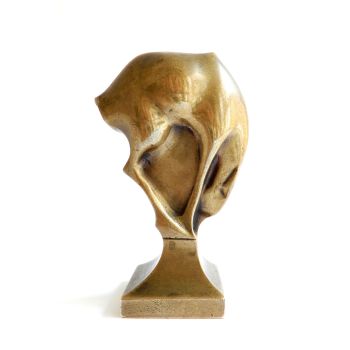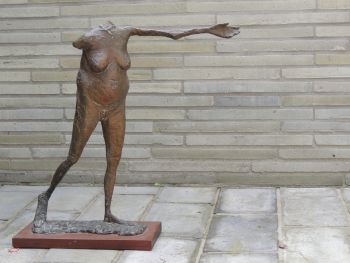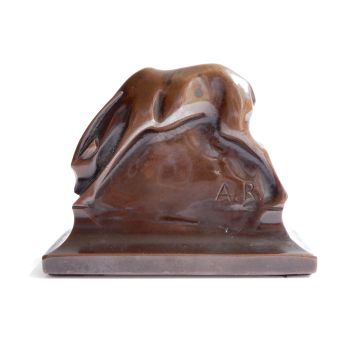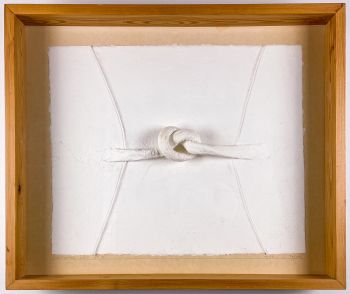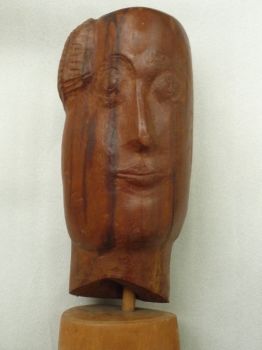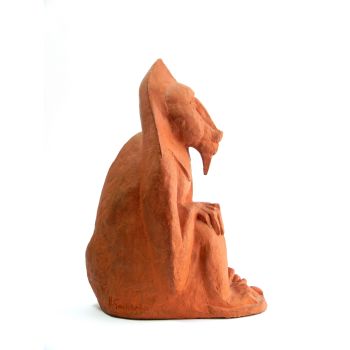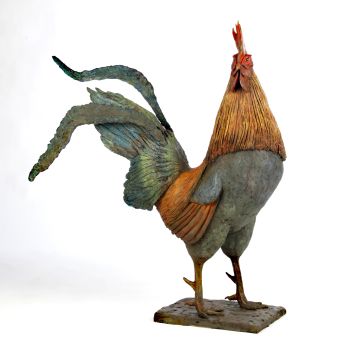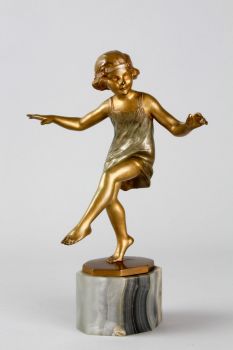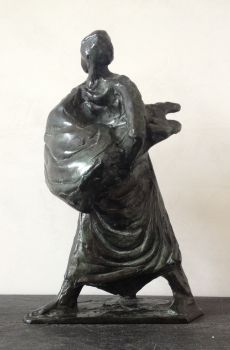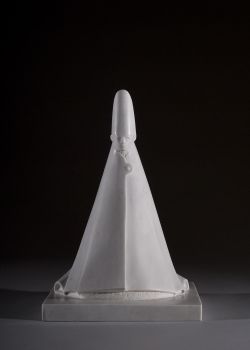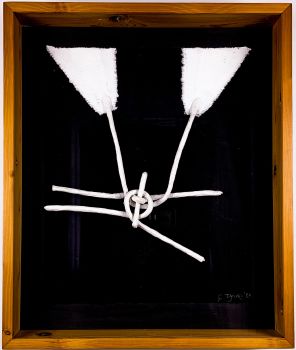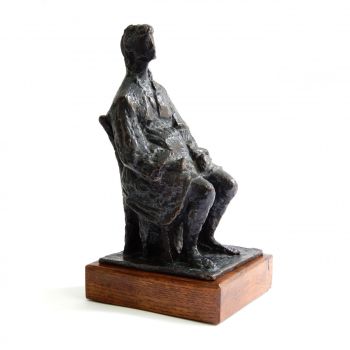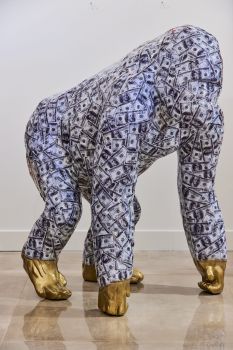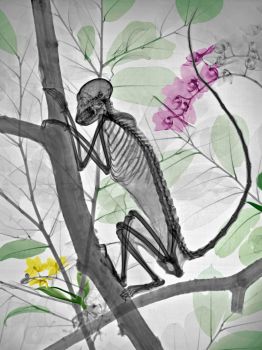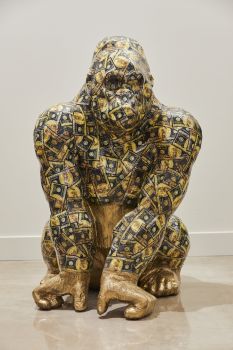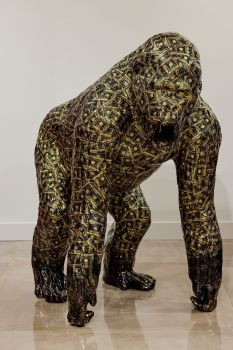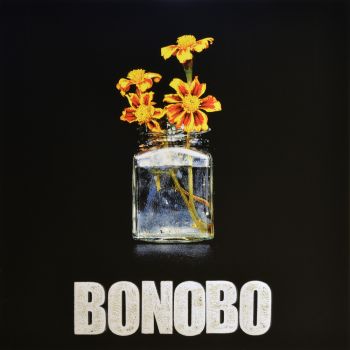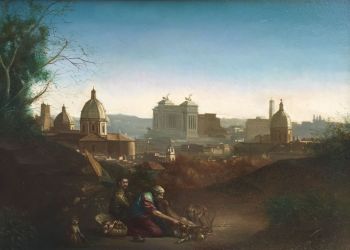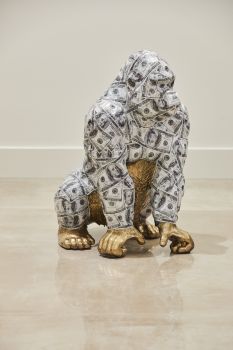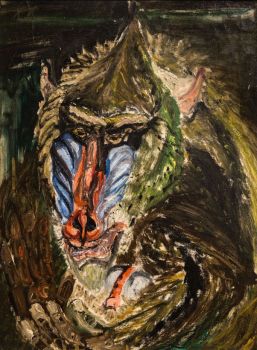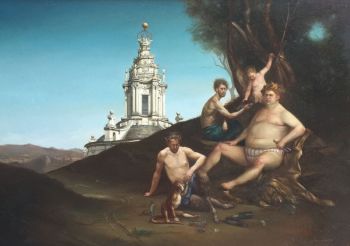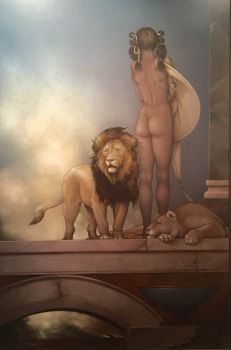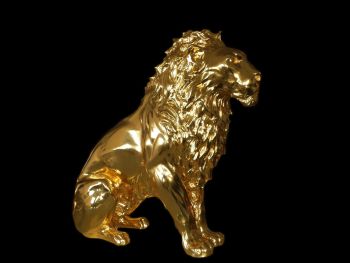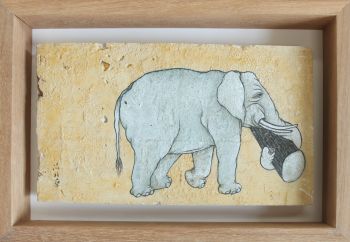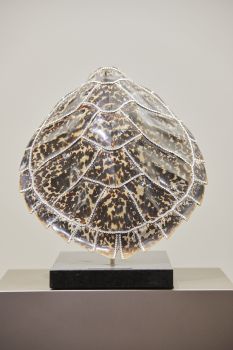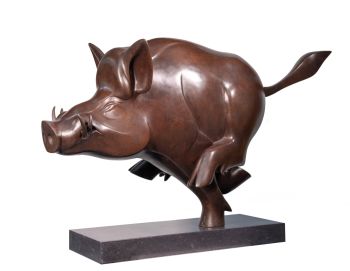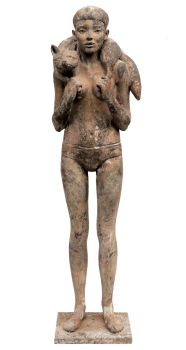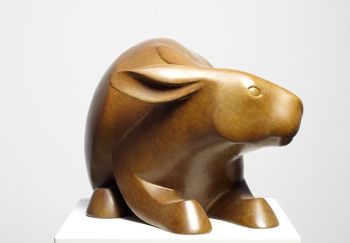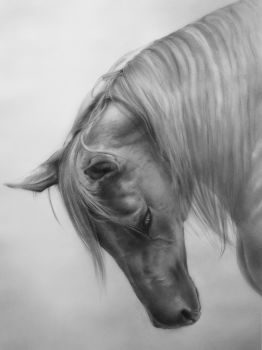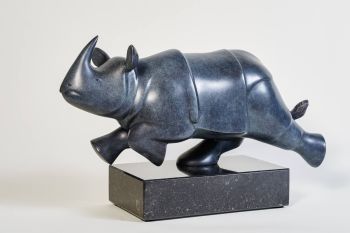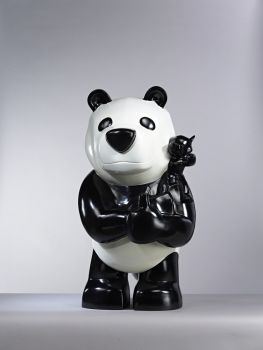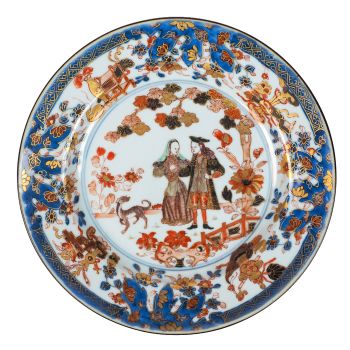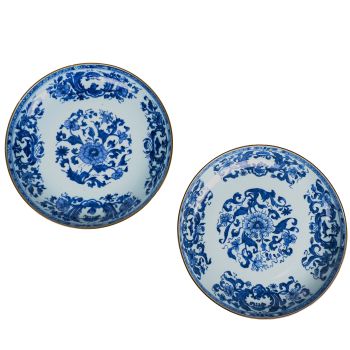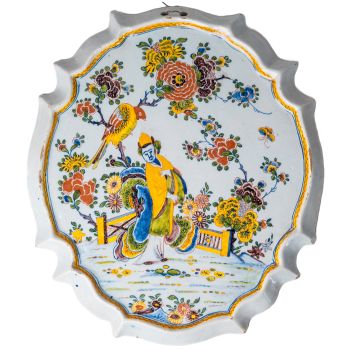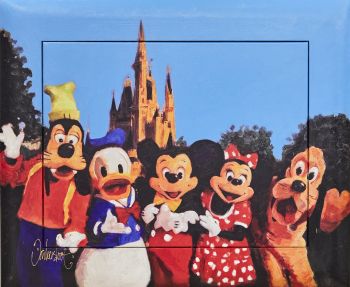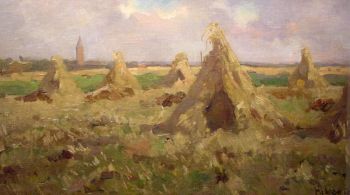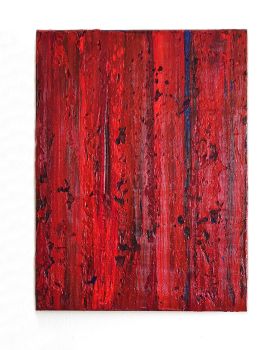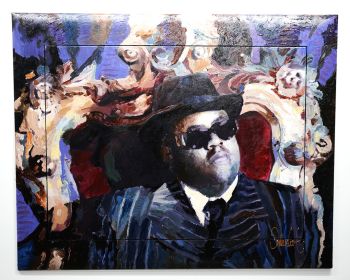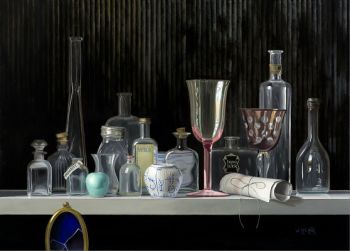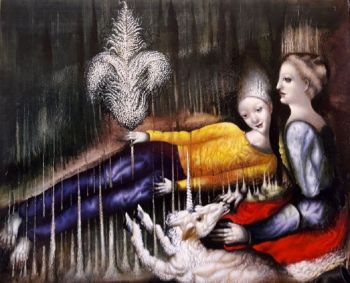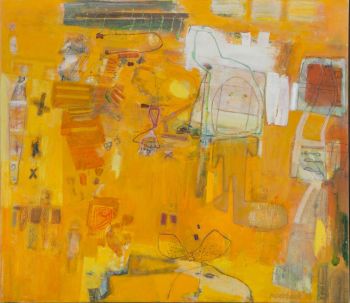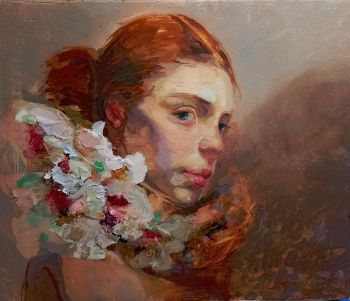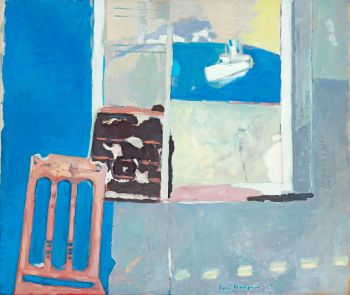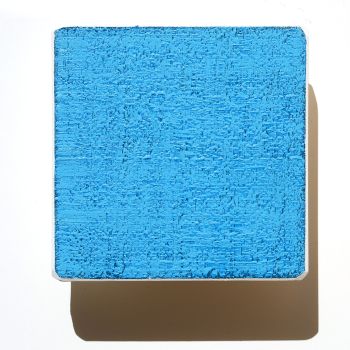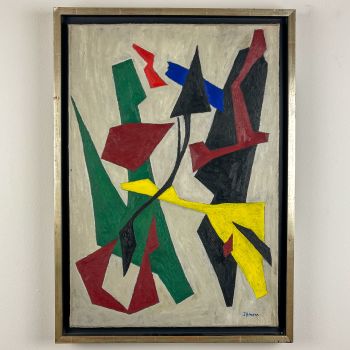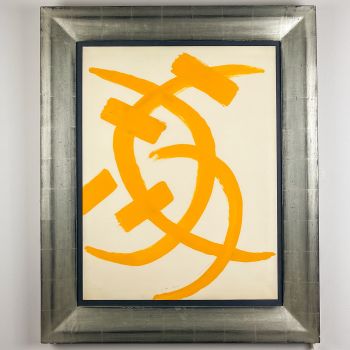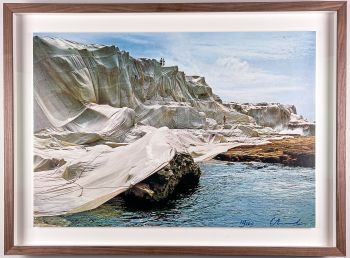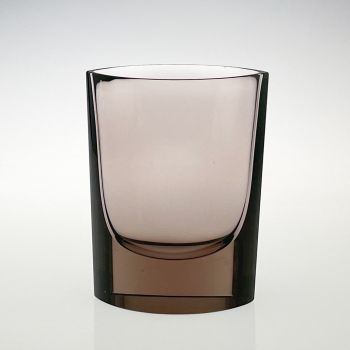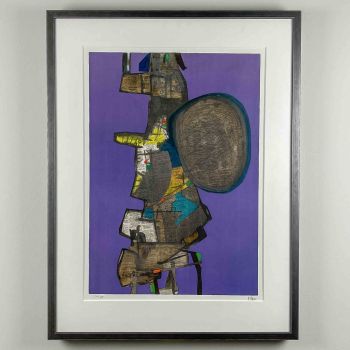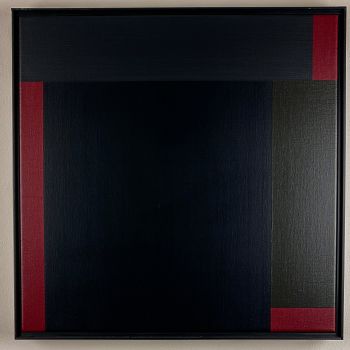A glazed stoneware sculpture of a Monkey – Rörstrand Sweden circa 1955 1951 - 1960
Gunnar Nylund
PietraSmaltoLegnaGresDipingere
20 ⨯ 20 ⨯ 10 cm
ConditionVery good
€ 1.450
Van Kerkhoff Art
- A proposito di opere d'arteA stoneware sculpture of a thinking Monkey, finished in cream-white, sand and dark brown glazes on a lacquered ashwood base.
Gunnar Nylund was particular know for his animal figures with beautiful experimental glazes. The larger examples and sculptures of exotic animals, are especially sought after.
This sculpture was designed by Gunnar Nylund and executed by the Swedish ceramics factory Rörstrand in the 1950’s.
It is fully signed underneath: Rörstrand – R with 3 crowns – Sweden – GN (Gunnar Nylund).
About Gunnar Nylund
Gunnar Nylund (1904-1997) was a Swedish artist, ceramist and sculptor most known for his work for the Swedish ceramic manufacturer Rörstrand.
He was born in Paris to a Danish mother and a Swedish-Finnish father, both artists. His mother Fernanda Jacobsen-Nylund was a ceramist and his father Felix Nylund a sculptor. He grew up in Helsinki and moved to Copenhagen in 1917. In Denmark he received his education as an architect at the Royal Danish Academy of Fine Arts in the 1920’s. In 1929 together with Nathalie Krebs he started a ceramics workshop Nylund og Krebs that later was renamed to Saxbo.
In 1931 Nylund started working for the ceramics manufacturer Rörstrand in Lidköping in Sweden, becoming Rörstrand’s artistic director in 1937 and he continued to work there in this position until 1956. In this period Nylund became well known for his innovative feldspar glazes – popularized by renowned ceramists Berndt Friberg and Carl-Harry Stålhane – and his glazed stoneware animal sculptures.
After his time at Rörstrand he became artistic director at the Strömbergshyttans glassworks in Hovmantorp, Sweden and in the early 1960’s worked for the Nymölle Keramiska Fabrik in Lyngby, Denmark where he started producing stoneware.
Nylund crafted some 30 reliefs and sculptures commissioned for public spaces and many of his sculptures are part of museal collections ie: The National Museum in Stockholm, the Sèvres museum in Paris, the Röhsska museet in Gothenburg, the Ateneum museum in Helsinki and the Danish Museum of Art & Design.
Extra informatie Doe een bod
Marked
Marked underneath the base: Rörstrand – R (Rörstrand) with 3 crowns – Sweden – GN (Gunnar Nylund)
Execution
Rörstrand, Sweden 1951-1960
Condition
This sculpture is in very good condition. No cracks or chips.
Lacquered ashwood base included.
Literature
Mel Bryans – The Design Encyclopedia p. 535
Dimensions
Height 20 cm (including base)
Width 20 cm
Depth 10 cm
Weight 1079 grams - A proposito di opere artista
Gunnar Nylund (1904-1997) è stato un artista, designer e scultore di origine danese e finlandese che ha lavorato prevalentemente in Svezia. Vero pioniere delle arti decorative dell'era della metà del secolo, è considerato uno dei ceramisti più importanti del XX secolo ed è meglio conosciuto per il suo lavoro con il famosissimo produttore di ceramiche svedese Rörstrand.
Nylund è stato esposto a varie forme d'arte in tenera età grazie ai suoi genitori artisti. Questa esposizione ha contribuito notevolmente alle sue capacità multidisciplinari e ha chiaramente servito bene la sua variegata carriera nelle arti decorative. Sebbene abbia inizialmente studiato architettura a Copenaghen, ha lasciato questi studi per accettare un posto fisso presso la fabbrica di porcellane Bing & Gröndahl. Fu lì che conobbe la ceramista danese Nathalie Krebs, con la quale avrebbe continuato a sviluppare la sua gamma innovativa e, successivamente, il laboratorio "Saxbo" nel 1930.
La sua sperimentazione con nuove forme impressionò molto Rörstrand, che lo nominò direttore artistico nel 1932 fino al 1955. Dopo questo periodo, Nylund assunse il ruolo di direttore artistico della vetreria Strömbergshyttan mentre lavorava ancora come designer di ceramica. Sebbene il corpus di opere di Nylund in vetro sia molto inferiore a quello in ceramica, è chiaro che eccelleva anche nel mezzo creando vasi eleganti senza tempo con splendidi colori.
Come molti dei suoi famosi contemporanei, il lavoro di Nylund è definito da un'esplorazione di forme e tecniche moderne oltre ai suoi smalti lisci e opachi e ai bellissimi colori tenui. I suoi rivoluzionari vasi in gres ne sono un ottimo esempio per cui ha utilizzato la chamotte, un materiale di argilla grezza, mescolato con argilla da modellare. Questo materiale assicurava che gli oggetti non crollassero mentre venivano realizzati, consentendo forme più delicate e fini.
Oltre al gres e al vetro, Nylund è anche un affermato scultore a cui è stato commissionato di creare molte opere per spazi pubblici, teatri, biblioteche e banche. Il suo lavoro è ospitato in numerosi musei svedesi, tra cui il Museo Nazionale di Stoccolma, così come vari altri come il Danish Museum of Art & Design, l'Ateneum Art Museum di Helsinki e il National Ceramics Museum di Sèvres a Parigi.
Sei interessato ad acquistare questa opera d'arte?
Related artworks
- 1 - 4 / 4
Børge Mogensen
Teak wood “dropleaf” desk – Søborg Møbler, Denmark circa 19551950 - 1960
Prezzo su richiestaVan Kerkhoff Art
1 - 4 / 24Klaas II Mobach
Hanna Mobach, daughter of the sculptor Klaas Mobach, reading1950 - 1970
Prezzo su richiestaKunsthandel Pygmalion
Shinkichi Tajiri
“Koan” 1988 – papier-mâché / cotton on paper, original frame1988
Prezzo su richiestaVan Kerkhoff Art
1 - 4 / 24- 1 - 4 / 24
- 1 - 4 / 24
Shinkichi Tajiri
“Koan” 1988 – papier-mâché / cotton on paper, original frame1988
Prezzo su richiestaVan Kerkhoff Art
1 - 4 / 12







